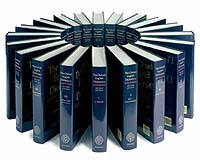 |
Beijing (AFP) Oct 5, 2009 "To get rich is glorious" has been the mantra in booming communist China for 30 years, but few have embraced the slogan more vigorously than Wen Qiang, a leading law official in the country's southwest. Wen, a former head of the judiciary and ex-vice police chief in Chongqing, amassed assets valued at over 100 million yuan (14.7 million dollars), but now stands accused of protecting crime bosses in exchange for gifts and kickbacks. The 54-year-old is one of dozens of top judicial officials, including the former vice head of China's top court, ensnared in high-stakes graft scandals despite repeated Communist Party pledges and campaigns to stamp out corruption. President Hu Jintao has said corruption is threatening the legitimacy of the party, and the subject was a major focus of last month's annual meeting of its key central committee, but observers say anti-graft efforts are falling short. "When people like the vice head of the Supreme Court are accepting bribes and engaging in corruption, you can draw your own conclusions over how serious the corruption in China's judiciary is," Beijing lawyer Mo Shaoping told AFP. "Corruption in the judiciary is pretty serious." Wen, who became Chongqing's top judicial official last year after 16 years on the police force, stands accused of protecting an intricate web of businessmen, officials and mobsters in the city of over 30 million people. According to state media, he has been charged with shielding businesses in numerous sectors such as real estate, transportation, gambling and prostitution as well as an illegal loan racket worth 30 billion yuan last year. Up to 2,000 suspects have been placed under investigation in the case. At least two dozen top city officials have been caught up in the crackdown, including the vice president of Chongqing's high court, Zhang Tao. "What is more shocking than Wen Qiang's ties with businessmen and the mafia is the role which government officials at all levels played," the China Youth Daily said in a commentary. "If a string of government officials from top to bottom had not been linked together to form bridges, then Wen Qiang would not have had the power nor the ability to establish such a protection umbrella." Just after Wen's case came to light, the ruling party expelled Huang Songyou, the disgraced former vice head of China's Supreme People's Court, who was placed under investigation for graft last year. Huang, 51, allegedly helped to resolve a 400-million-yuan real estate case in exchange for a large kickback when he was a top court official in southern Guangdong province in the late 1990s, media reports said. "The big issue for China is corruption -- corruption is related to the fact there is no checks and balances mechanism on power," Joseph Cheng, a political scientist at City University of Hong Kong, told AFP. "This is related to the party wanting to maintain a monopoly on political power and not being ready to adopt restraints on power. So it is a vicious circle that is not allowing them to effectively fight corruption." In its latest efforts to stamp out graft, the ruling party has said it will now require officials to disclose their assets and their family's employment situation, according to state media. Cheng said disclosure would be helpful, but suggested that greater freedom in the press to report on official corruption and more oversight from the nation's rubber-stamp parliament would make anti-graft efforts more effective. Mo, a high-profile Beijing rights lawyer whose firm often handles compensation cases tied to land acquisition, said corruption was rife in both civil and criminal courts, though bribery in civil cases was more common. Top court officials in Beijing as well as Guangdong, Hubei and Liaoning provinces have recently been convicted for taking money from attorneys in exchange for favourable rulings. The former vice head of Beijing's western district court, 58-year-old Guo Shengqui, was sentenced to death with a two-year reprieve for taking bribes and kickbacks from real estate developers and lawyers. The two-year reprieve means that Guo's death penalty could be commuted to life in prison if he behaves in prison and expresses remorse for his crimes. "You can know the law and you can have a clear-cut case, but if the court is really corrupt, then the law does not matter," said Mo. Share This Article With Planet Earth
Related Links China News from SinoDaily.com
 Hong Kong publisher defies history book's ban in China
Hong Kong publisher defies history book's ban in ChinaHong Kong (AFP) Sept 28, 2009 A Hong Kong publisher on Monday released a book about Chinese history that was banned in mainland China for criticising authoritarian rule, just days before the celebration of 60 years of communism. "Chinese History Revisited" by journalist Xiao Jiansheng is on sale in Hong Kong bookshops despite Beijing banning the book two years ago, the publisher Bao Pu told AFP. Xiao's work, with an ... read more |
|
| The content herein, unless otherwise known to be public domain, are Copyright 1995-2009 - SpaceDaily. AFP and UPI Wire Stories are copyright Agence France-Presse and United Press International. ESA Portal Reports are copyright European Space Agency. All NASA sourced material is public domain. Additional copyrights may apply in whole or part to other bona fide parties. Advertising does not imply endorsement,agreement or approval of any opinions, statements or information provided by SpaceDaily on any Web page published or hosted by SpaceDaily. Privacy Statement |